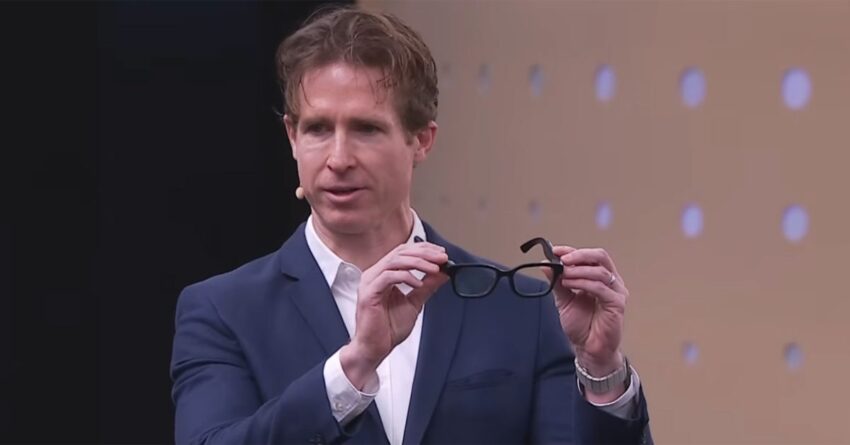
google shows off prototype android xr glasses Google has officially announced the extension of its partnership with Magic Leap, aiming to bring Android XR glasses to market, following the recent unveiling of Samsung’s Galaxy XR headset.
google shows off prototype android xr glasses
The Evolution of XR Technology
Extended Reality (XR) encompasses a spectrum of immersive technologies, including virtual reality (VR), augmented reality (AR), and mixed reality (MR). As the demand for more interactive and engaging digital experiences grows, companies are racing to develop XR solutions that cater to various sectors, including gaming, education, healthcare, and enterprise applications. The recent advancements in XR technology have opened the floodgates for innovation, with major players like Google and Samsung leading the charge.
The Significance of Google’s Partnership with Magic Leap
Google’s collaboration with Magic Leap is particularly noteworthy. Magic Leap, known for its innovative AR technology, has been a significant player in the XR space, albeit with a mixed track record in terms of commercial success. By extending their partnership, Google aims to leverage Magic Leap’s expertise in AR to enhance the capabilities of its Android XR glasses.
This partnership is not merely about creating hardware; it represents a strategic move to integrate Google’s software ecosystem with Magic Leap’s hardware innovations. The potential for seamless integration between Android applications and XR experiences could redefine how users interact with digital content.
What to Expect from the Android XR Glasses
While specific details about the Android XR glasses remain sparse, several key features and functionalities are anticipated based on the capabilities of existing XR technologies and the strengths of both companies.
Design and Usability
The design of the Android XR glasses is expected to prioritize comfort and usability. Unlike traditional VR headsets, which can be bulky and cumbersome, the goal is to create lightweight glasses that users can wear for extended periods without discomfort. This focus on ergonomics is crucial for widespread adoption, especially in environments like workplaces or educational settings.
Integration with Android Ecosystem
One of the most significant advantages of the Android XR glasses will be their integration with the Android ecosystem. This means that users will have access to a vast library of applications and services already available on Android devices. From productivity tools to gaming applications, the potential for diverse use cases is immense.
Enhanced Augmented Reality Experiences
Magic Leap’s expertise in AR will likely play a pivotal role in the development of the glasses. Users can expect enhanced AR experiences that blend digital content with the real world. For instance, users might be able to overlay digital information onto physical objects, making it easier to interact with their environment in innovative ways.
Market Implications and Competitive Landscape
The announcement of Google’s Android XR glasses comes at a time when the XR market is becoming increasingly competitive. With Samsung’s recent launch of the Galaxy XR headset, the landscape is evolving rapidly. Other tech giants, including Apple and Meta, are also investing heavily in XR technologies, further intensifying the competition.
Potential Impact on the XR Market
Google’s entry into the XR glasses market could significantly impact the competitive landscape. By leveraging its extensive software ecosystem and Magic Leap’s hardware capabilities, Google may be able to offer a compelling product that appeals to both consumers and enterprises. This could lead to increased adoption of XR technologies across various sectors.
Stakeholder Reactions
Reactions from industry stakeholders have been mixed but generally optimistic. Analysts believe that Google’s involvement could validate the XR market, encouraging other companies to invest in similar technologies. However, some caution that the success of the Android XR glasses will depend on their ability to deliver a superior user experience compared to existing products.
Challenges Ahead
Despite the excitement surrounding the announcement, several challenges lie ahead for Google and Magic Leap in bringing the Android XR glasses to market.
Technical Hurdles
Developing XR glasses that are both functional and user-friendly is no small feat. Technical challenges, such as battery life, processing power, and display quality, must be addressed to ensure a seamless user experience. Additionally, the integration of advanced features like spatial awareness and gesture recognition will require significant engineering efforts.
Market Readiness
The market for XR technologies is still in its infancy, and consumer awareness and acceptance are critical for success. Google and Magic Leap will need to invest in marketing and education to inform potential users about the benefits and applications of XR glasses. This includes demonstrating real-world use cases that resonate with consumers and businesses alike.
The Future of XR Glasses
The future of XR glasses looks promising, especially with the backing of major tech companies like Google. As the technology matures and becomes more accessible, we can expect to see a broader range of applications and use cases emerge.
Potential Applications
Several industries stand to benefit from the widespread adoption of XR glasses:
- Healthcare: Surgeons could use AR overlays during procedures to enhance precision and reduce errors.
- Education: Students could engage with interactive learning materials, making complex subjects more digestible.
- Retail: Shoppers could visualize products in their homes before making a purchase, enhancing the shopping experience.
- Gaming: Gamers could immerse themselves in augmented worlds, blending physical and digital gameplay.
Long-Term Vision
Google’s long-term vision for XR glasses may extend beyond consumer applications. The integration of XR technology into enterprise solutions could revolutionize how businesses operate. From virtual meetings to remote assistance, the potential for increased productivity and efficiency is substantial.
Conclusion
The announcement of Google’s extended partnership with Magic Leap and the development of Android XR glasses marks a significant milestone in the evolution of XR technology. As the market becomes increasingly competitive, the collaboration aims to deliver innovative solutions that could redefine user experiences across various sectors. While challenges remain, the potential for transformative applications makes this a development worth watching closely.
Source: Original report
Was this helpful?
Last Modified: October 31, 2025 at 12:37 pm
2 views














